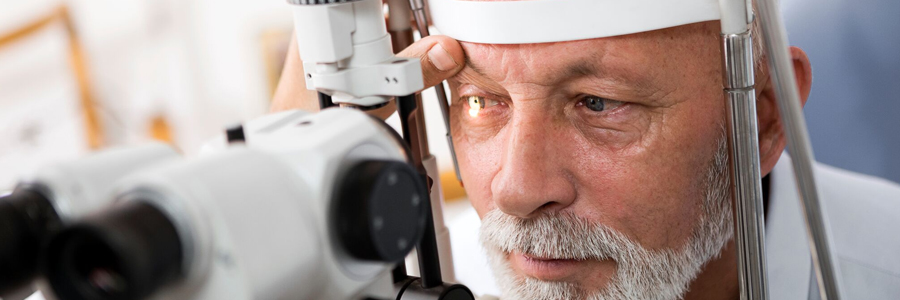Glaucoma

Glaucoma is a disease of the optic nerve that can cause vision loss. The most important risk factor for glaucoma is abnormally high eye pressure. Eye pressure goes up when the eye’s natural drainage system does not work as well as it should or is blocked by the iris (angle closure).
The risk of glaucoma increases with age. Glaucoma can also be associated with an eye injury, or other eye diseases such as diabetes or inflammation. There are some forms of glaucoma that develop even when the eye pressure is normal.
Providers at UK Advanced Eye Care use multiple testing strategies to diagnose and track glaucoma. Because the first damage from glaucoma often starts with changes only in the peripheral vision, many people do not become aware until the disease is in an advanced stage. Optic nerve damage is typically irreversible, so early detection and treatment are vital. Just like high blood pressure, glaucoma cannot be cured, but it can be controlled and stabilized with proper treatment.
Glaucoma screenings are suggested every two to four years for anyone over age 40. A routine eye exam can identify risk for glaucoma and early signs of the disease.
Medicare covers glaucoma screening for the risk factors listed below:
- A family history of glaucoma.
- African American or Hispanic ancestry.
- History of eye injury.
- History of prolonged steroid use anywhere in the body.
- Diabetes.
- Certain rare eye disease.
What are the symptoms of glaucoma?
- There may be no early signs or symptoms to indicate glaucoma.
- Gradual dimming or weakening of the vision is sometimes reported.
- Some patients with acute glaucoma develop severe eye pain and rapid visual changes.
How is glaucoma treated?
- Most glaucoma patients can be stabilized with prescription eye drops or an in-office laser treatment called SLT (selective laser trabeculoplasty). Once the pressure is stabilized, it is important to continue regular follow-up to make sure the pressure is staying low enough.
- Less frequently, glaucoma surgery may be required. The UK HealthCare Glaucoma Service offers several minimally invasive glaucoma surgery (MIGS) procedure choices. Many of these procedures are quick outpatient surgeries with minimal recovery time and are often performed in conjunction with cataract surgery. Please ask your provider about these procedure choices to learn more.
- Traditional trabeculectomy and tube shunt procedures are also performed when indicated.
- For patients who live outside the immediate area, we can often establish treatment plans with your local eye care provider to minimize your trips to our clinic.



